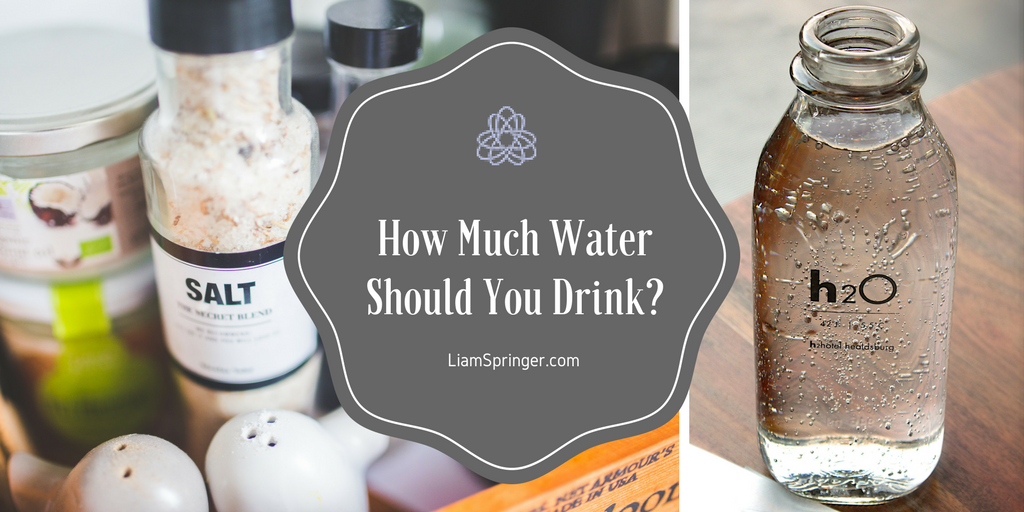 Hydration may seem like a simple topic. Just drink eight glasses of water a day and you’re good, right? Not quite. The truth is that hydration is not simply about drinking enough water. It’s much more complex. There’s no clear-cut, universal answer to the question of “How much water should you drink?” Keep reading to gain a better understanding of the hydration process, why it’s so important, and what factors to consider when it comes to maintaining good hydration.
Hydration may seem like a simple topic. Just drink eight glasses of water a day and you’re good, right? Not quite. The truth is that hydration is not simply about drinking enough water. It’s much more complex. There’s no clear-cut, universal answer to the question of “How much water should you drink?” Keep reading to gain a better understanding of the hydration process, why it’s so important, and what factors to consider when it comes to maintaining good hydration.
How Does Hydration Work?
When you drink water, it is not the same as filling a glass. Hydration is all about how the water is placed within the body. The body has many compartments, and within each compartment the fluid has very specific contents (e.g., the brain contains cerebrospinal fluid, the joints contain synovial fluid, and the cells contain cytoplasm). Various minerals, enzymes, and other molecules are essential to creating a nourishing environment for the tissues in each area. Appropriate hydration occurs when water is brought into the system without disturbing the delicate balance of the various compartments—including the fascia that holds everything together.
Drinking water without the appropriate nutrition and minerals will likely deplete the vital materials allowing proper hydration. So be sure to balance your water intake with good nutrition and minerals—including sodium, potassium, calcium, and magnesium.
To maintain healthy hydration, the water you drink must be balanced with appropriate nutrition and minerals.
Balancing Water and Sodium Intake
It’s extremely important to strike a good balance between water and sodium intake in particular. When you become dehydrated—especially from sweating—you are losing more salt than the water you drink contains. (Think about how salty your sweat is compared to drinking water.) To prevent hyponatremia, or dangerously low sodium, your body adapts and tries to retain the salt and water you consume. It cannot retain sodium without retaining water as well. The problem is, when you drink water without salt and your body is retaining water, the sodium in your system becomes significantly diluted. So even though you retain the water you drink and the sodium you have in your system, there will be a rapid increase in your body’s sodium deficiency (because the water content is increased relative to the amount of sodium present), and the process of healthy hydration will be impaired.
The balance of water and salt in your system is not only affected by the amount of water you consume. It is also significantly impacted by timing and activities (i.e., when you drink and what you do before and after). Thus it is extremely important to balance your water and sodium intake, especially when you are participating in activities that make you sweat. For optimal nutrition during your workout, try making a sports drink with orange juice, sea salt, and hydrolyzed gelatin protein. Get my orange juice sports drink recipe.
While drinking clean, mineral-rich water is absolutely a healthy activity, when you drink it and what you’ve been doing before and after are essential variables to whether or not the water will actually provide you with the health you desire.
So, How Much Water Should You Drink?
As previously stated, there’s no clear-cut answer to this question. The idea that “more is better” is simply not true. A better rule of thumb would be “drink to thirst and salt to taste.” But of course it’s a lot more complicated than that. For people whose metabolism and fascia are healthy and functional, drinking between 2–4 liters per day is a good benchmark. However, for people who are unhealthy, drinking that much water could in fact make things worse. The most important thing is to maintain a good balance of water and minerals (e.g., sodium) in your system.
For more specific hydration tips, including when to drink water in relation to meals and activities, stay tuned for my next blog post: 5 Simple Rules for Hydration.
For more insights on the latest topics in health and nutrition, sign up for my monthly newsletter. Want to try a new exercise method that’s great for stress relief, posture, and flexibility? Visit BeTheMostAlive.com to register for ELDOA group classes in St. Louis!







1 Comment